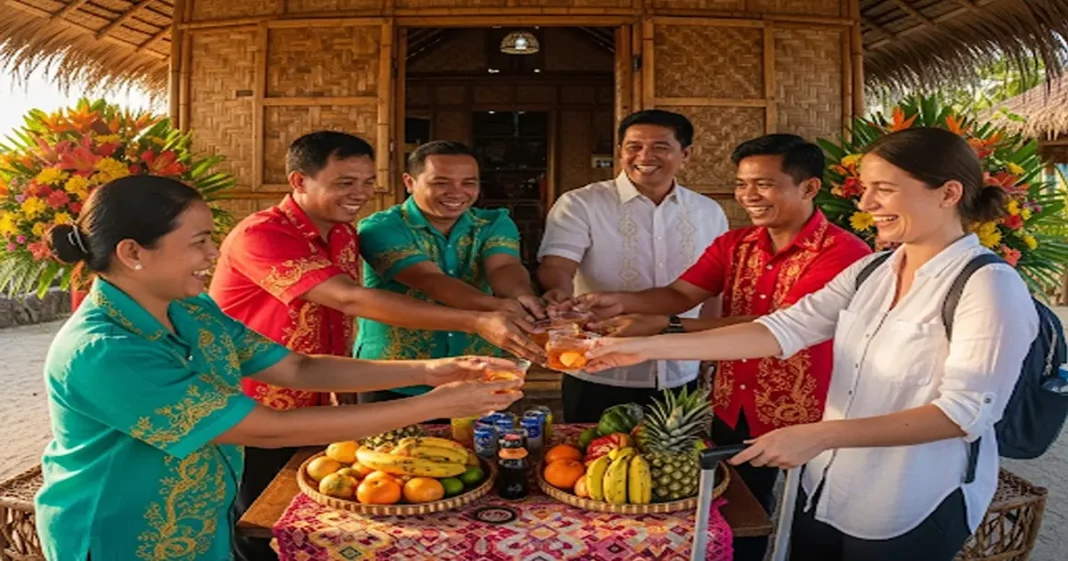Filipino hospitality—that world-renowned warmth, generosity, and genuine welcoming spirit—is often the first thing travelers mention when describing their experience in the Philippines. It’s more than just good manners; it’s a deep-seated cultural value, a profound expression of care that makes visitors feel like cherished family members, not just guests. This inherent kindness is woven into the very fabric of Filipino society, making every encounter feel personal and sincere. But have you ever truly pondered the rich history of Filipino hospitality and how it became such a defining characteristic of our people?
Indeed, understanding its origins reveals a beautiful tapestry of indigenous customs, spiritual beliefs, and historical influences that shaped this extraordinary trait. Moreover, delving into its past only deepens our appreciation for every shared meal, every comforting gesture, and every genuine smile, reinforcing its enduring power to connect hearts.
Pre-Colonial Foundations: Communal and Familial Bonds
The roots of Filipino hospitality stretch back to pre-colonial times, when indigenous communities lived in close-knit barangays. Life was communal, and survival often depended on mutual support and strong familial bonds. There was a natural inclination to welcome strangers, as trade and alliances were crucial for growth and security. Therefore, treating visitors with kindness and offering sustenance was not just a courtesy but a practical necessity and a sign of good will.
Within these communities, the concept of *kapwa*—a shared inner self or shared humanity—played a significant role. It fostered a sense of interconnectedness, where the well-being of one was tied to the well-being of all. This philosophical foundation naturally led to a culture where extending help, sharing resources, and welcoming others were second nature. This deep-seated respect for fellow human beings laid the essential groundwork for the history of Filipino hospitality.
Colonial Influences and Christian Values
Centuries of colonization, particularly under Spanish and later American rule, further shaped and reinforced Filipino hospitality. The introduction of Catholicism by the Spanish played a crucial role. Christian tenets of charity, love for one’s neighbor, and welcoming the stranger found fertile ground in the already existing Filipino values of communal harmony and respect. Consequently, hospitality became intertwined with religious duty and moral virtue.
The Spanish influence also brought about the concept of *fiestas* and elaborate celebrations, where opening one’s home and providing abundant food became a central expression of devotion and generosity. This tradition of lavish entertaining for guests, even at significant personal cost, became a hallmark of Filipino hospitality. The American period, with its emphasis on education and democratic ideals, also contributed to a more open and welcoming approach to foreign visitors, further enriching the complex history of Filipino hospitality.
The Bayanihan Spirit and Beyond
Filipino hospitality is inextricably linked with the *Bayanihan* spirit, a concept of communal unity and cooperation. Just as communities come together to help each other move a house or rebuild after a disaster, so too do individuals extend their generosity to guests. It’s a collective effort to ensure that everyone feels comfortable, cared for, and respected. This spirit often manifests in practical ways, like offering the best portions of food, providing comfortable sleeping arrangements, and going out of one’s way to assist a visitor.
Beyond grand gestures, Filipino hospitality is evident in everyday interactions: a readiness to offer directions, a quick invitation for coffee or a meal, or genuine concern for a visitor’s well-being. It’s a sincere desire to make others feel at home, regardless of their origin. This innate kindness often stems from a deep empathy and a belief that treating others well brings good fortune and blessings.
Enduring Legacy in Modern Times
Today, Filipino hospitality continues to be a defining characteristic, recognized and celebrated worldwide. Despite economic challenges or the rapid pace of modernization, the core values of warmth, generosity, and respect for guests remain strong. Filipinos take immense pride in their ability to make visitors feel truly at home, often going above and beyond expectations.
Whether you’re visiting a bustling city or a remote island, you’ll likely encounter this exceptional kindness. It’s a cultural heritage passed down through generations, a testament to the resilience and inherent goodness of the Filipino people. The history of Filipino hospitality is a continuous narrative of sharing, caring, and creating genuine connections, ensuring that every guest leaves with not just memories, but a feeling of having found a second home.
For more lifestyle blogs, visit mavhic.com

